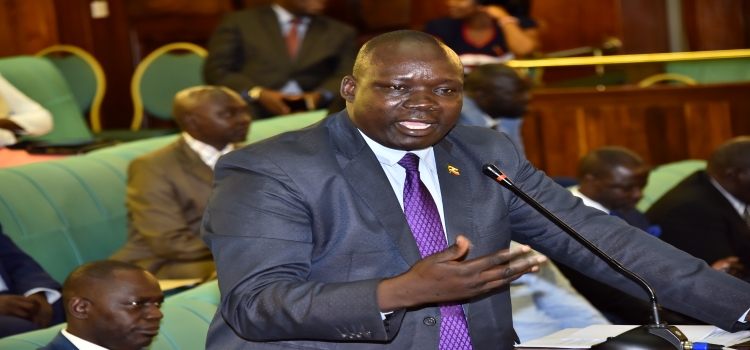
Legislators have adopted a report recommending a forensic audit of the national identification registration of learners undertaken by the National Identification and Registration Authority (NIRA).
The report of the Committee on Defence and Internal affairs on the petition and oversight visits on operations of the National Identification and Registration Authority recommended that the Auditor General should conduct a forensic audit on the entire Learners Project including the procurement processes, method of recruitment, level of facilitation and mode of payment to the field staff.
Parliament approved Shs 53.9 billion in the 2017/2018 Financial Year for a national registration exercise of learners. The learners, under 16 years of age, are issued with National Identification Numbers (NIN) at the completion of their registration.
While presenting the report during plenary on Tuesday, 7 July 2020, the committee vice chairperson, Hon. Moses Nagwomu (NRM, Bunyole East County), said that much as funds were injected into the Learners Project with a reported 9.6 million pupils registered out of the projected 10 million, there is still a big number of pupils who are not yet registered.
“This is because the initial registration exercise excluded some schools in hard to reach areas and some private schools, which NIRA attributed to insufficient funds for the registration exercise,” he said.
Nagwomu added that the committee established that funds for project activities during the Learners Project were not released in time, causing a set-back in beating deadlines of activities that had been budgeted for by the regional offices and approved by officials at NIRA headquarters.
“This affected implementation of planned activities and officers were left with no option but to conduct the activities, incurring debts from service providers to serve the public,” he said.
Hon. Noeline Basemera (NRM, Kibaale district) said that there is a need for a thorough investigation into the learner’s registration exercise and action taken against NIRA. “The programme was marred with irregularities, some learners were left out. Why is NIRA very ineffective and yet it is a very important institution,” Basemera wondered.
Hon. James Niringiyimana (NRM, Kinkizi County West) said that Ugandans deserve to know why registration of learners was not completed. “When the exercise commenced, we were told that the machines to be used were not working, and yet a budget was passed to facilitate the process,” he said.
Hon. Anthony Akol (FDC, Kilak North County) said that NIRA should provide accountability for funds disbursed for the exercise. “Many children after registering turned 18 years but up to now do not have IDs and this means they cannot vote,” he said.
Hon. Richard Othieno Okoth (NRM, West Budama County North) blamed the challenges in NIRA on mismanagement, saying that NIRA has adequate resources required to be effective.
“NIRA is not underfunded, the issue is just being used as a cover to fail to provide services,” he said.
The Minister of State for Internal Affairs, Mario Obiga Kania acknowledged that NIRA faced management challenges, but hastily added that this has been handled.“Steps have been taken to reconstitute the Board. A new Board has been appointed and we are confident that this board will work better,” he said.
Obiga Kania added that the Board is in the process of recruiting the new Executive Director (ED) after the contract of the outgoing ED was not renewed.
He also said that distribution of identification cards for learners who were registered will be done at district level.“Those who were above 16 were expected to be issued with their cards and they were about three million. The information I have which is correct is that the cards are in their respective schools and these will be distributed,” he said.
Obiga Kania added that those who were under 16 years of age will not be re-registered, but will be given National Identification Numbers.
